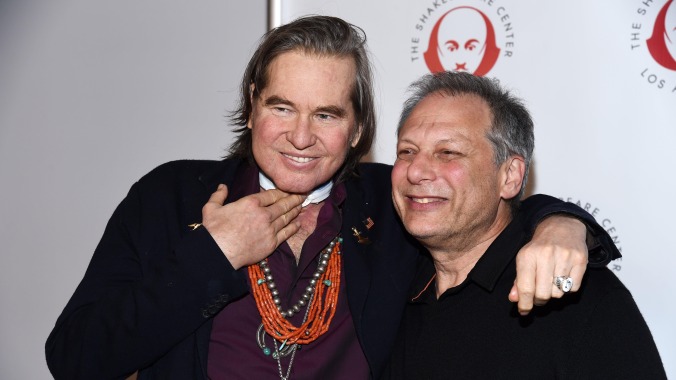Val Kilmer's voice was recreated using A.I. in Top Gun: Maverick
The actor lost his voice after treatment for throat cancer in 2014

Top Gun actor Val Kilmer and Ben Donenberg. Photo: Amanda Edwards/Getty Images
Top Gun: Maverick soared into theaters this past Memorial Day weekend, bringing back Tom Cruise’s reckless Navy pilot Maverick, shirtless group sport activities, and Kenny Loggins’ 1980s hit “Danger Zone.” The sequel also brings back Maverick’s Top Gun rival, the blonde highlights-having Iceman (played by Val Kilmer).
Now an admiral, Iceman in Top Gun: Maverick is mostly unable to speak due to an unnamed disease, similar to Kilmer’s own loss of speech after undergoing a tracheotomy for throat cancer back in 2014. Yet, he’s able to deliver one emotionally potent line of dialogue to Maverick thanks to some advanced artificial intelligence used by the actor previously.

 Keep scrolling for more great stories from A.V. Club.
Keep scrolling for more great stories from A.V. Club.